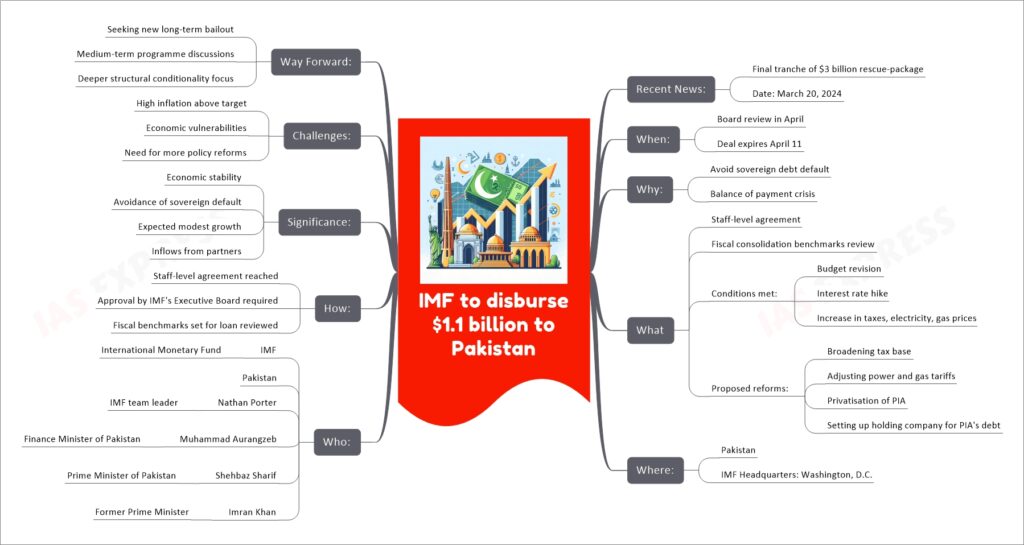IMF to disburse $1.1 billion to Pakistan

The IMF has initially agreed to disburse $1.1 billion to Pakistan, marking the final portion of a previously secured $3 billion rescue package. This financial aid is crucial for Pakistan as it navigates through a dire economic situation, including a balance of payment crisis and the looming threat of sovereign debt default. The staff-level agreement, subject to approval by the IMF’s Executive Board, aims to bolster Pakistan’s economy by implementing stringent fiscal measures, including a budget revision, an interest rate hike, and the increase in taxes and utility prices. Additionally, it calls for broadening the tax base and adjusting power and gas tariffs. Amidst seeking this disbursement, Pakistan is already in pursuit of another long-term bailout from the IMF, indicating ongoing economic challenges and the need for substantial policy reforms.
In simpler terms, the International Monetary Fund (IMF) has decided to give Pakistan $1.1 billion as the last part of a bigger $3 billion help package. This money is very important for Pakistan to help fix its economic problems and to avoid failing to pay back its debts. The deal between the IMF and Pakistan requires Pakistan to make some tough economic changes, like increasing taxes and the cost of electricity and gas, to get the money. Also, Pakistan is looking for more help from the IMF to keep improving its economy. This is a step to help Pakistan’s economy get better, but it also shows that Pakistan has to make more changes to fully stabilize its economy.
If you like this post, please share your feedback in the comments section below so that we will upload more posts like this.

